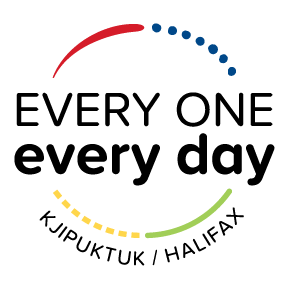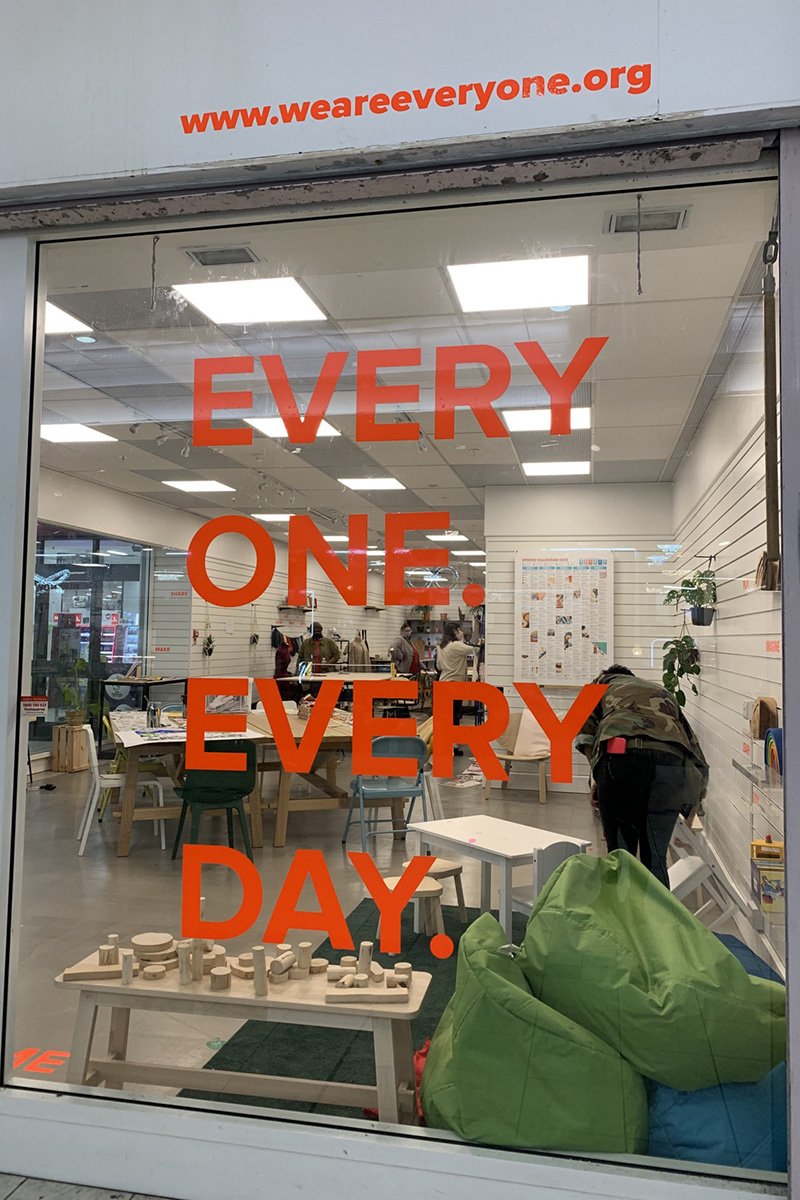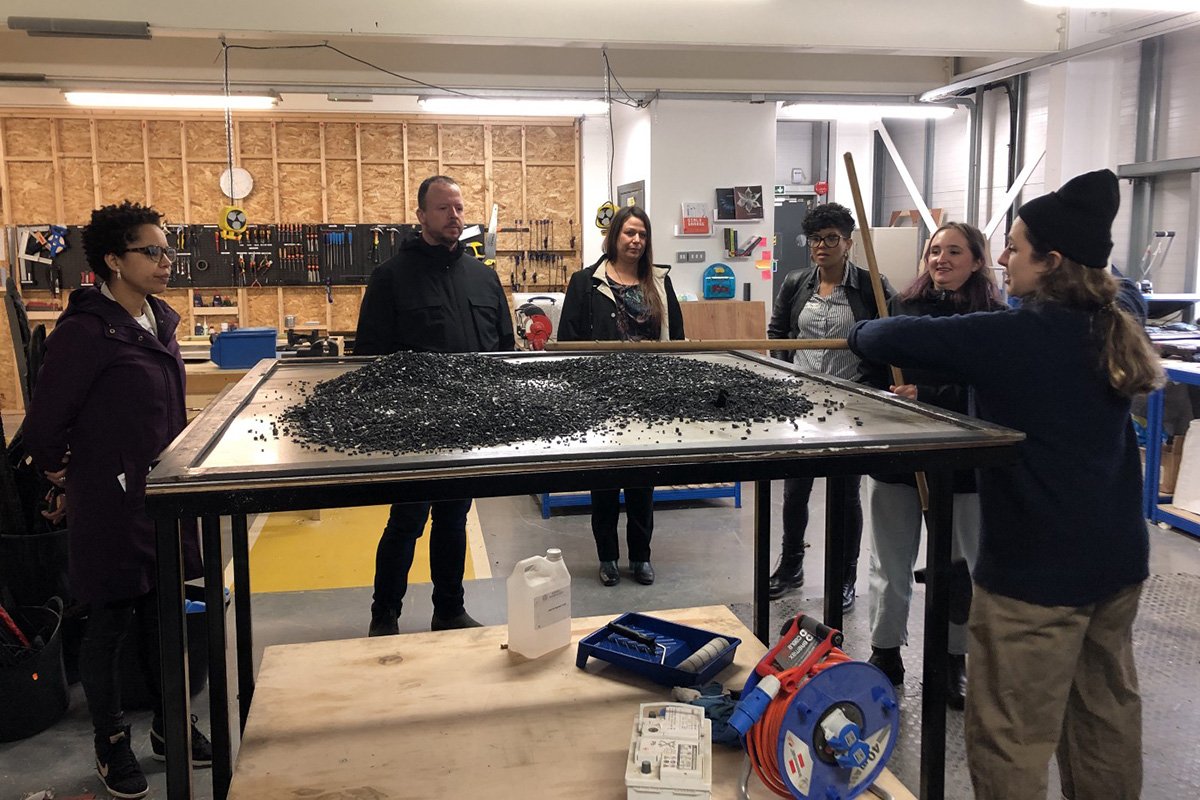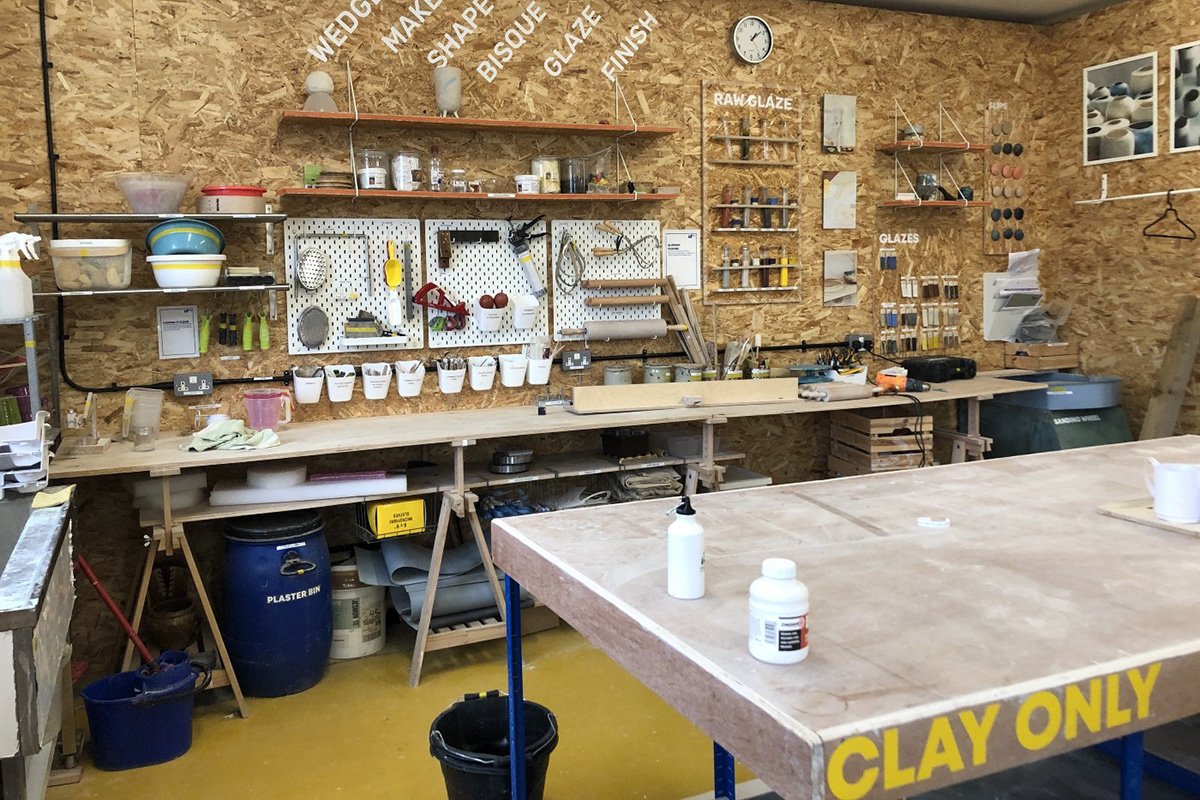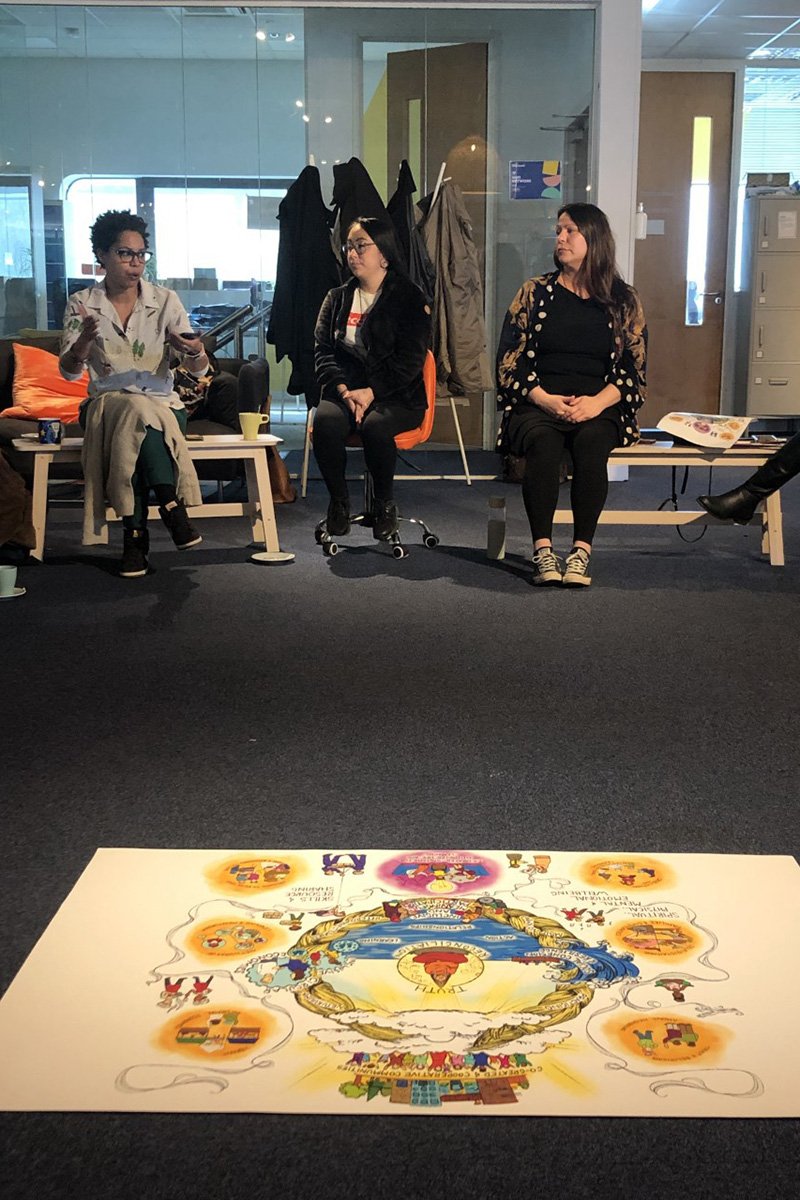Coming Together
Coming Together (Across the Ocean) to Explore Civic & Social Systems for Inclusive Participation & Reconcili-ACTION.
by Aimee Gasparetto
Anticipation was high as our newly hired team set off for a week of experiential learning at the Every One Every Day project in East London, UK. The trip had originally been planned for two years prior, for a different group leaders and collaborators who were inspired by the work of the Participatory City Foundation and the potential for its’ application in the Canadian context.
The story of this work unfolding in Canada, including a Halifax pilot that took shape in March 2020 is described in previous posts. It’s the story that brought this new team of seven to the boroughs of Barking and Dagenham in East London for further exploration of a platform for everyday, practical participation, which is bringing together 1000s of residents to work together on different neighbourhood projects.
The trip in its entirety gave us much food for thought around the ingredients required to build inclusive participation at the scale of neighbourhoods. We spoke with many different residents, explored new forms of social infrastructure, and did some deep dives into the thinking and planning behind what is now one of the largest neighbourhood demonstration projects in the UK. While there were many highlights, here’s a few that stood out:
Day One — Collaborative Making in The Warehouse: Our first day was a deep exploration of the Every One Every Day Warehouse — a 35,000 sq. foot building that is one of the largest open access workshop facilities in the UK — and rather interesting to imagine as a piece of public infrastructure in the civic landscape. Essentially, the warehouse is an extremely large shared workspace with lots of different types of spaces and equipment — things for woodwork, digital design, fashion and fabrics, for cooking in an industrial kitchen, as well as co-working and learning spaces. It’s a place for people of all ages and backgrounds to come together and make useful and creative things, and for people and families from across the area to get to know one another — much like a public library with specialized functions.
Learning how to turn recycled plastic into something new and useful. Part of a global movement called “Precious Plastic”
At first my mind struggled to make sense of a public makerspace THAT GIANT, with issues of access and safety bubbling to the forefront of my mind. But as I eased in and started to imagine people eager to share and learn new skills while making use of valuable equipment that for most people is hard to come by, let alone use — I saw the potential for this form of infrastructure to truly shift how we engage with one another, and our communities. The thought of having a fully accessible space this size, full of useful and exciting equipment to make things with others — felt like something I hadn’t quite imagined before.
Ceramics Section of the Every One Every Day Warehouse
Day Two — The Neighbourhood Shops: On day two our team visited five of the Every One Every Day Neighbourhood shops — spaces for residents to meet, co-create, and collaborate on neighbourhood projects of all kinds. These bright, open spaces are located on busy main streets and all have things in common such as a range of equipment and supplies, open invitations to lead and take part in new projects, and a welcoming team to introduce you to the space and other residents.
Each of the shops also had unique features which we later learned were based on the skills and talents of the residents in that particular area — whether it was a focus on greening projects, collective cooking, or fashion and fabrics — the shops create the conditions for many different residents to lead and take part in things they’re passional about. The feeling when you’re in these spaces is casual and welcoming — more like a giant living room in the centre of a neighbourhood, with new people to meet and lots of fun things to pick up and try.
Day Three — Un-Packing Collaborative Business Programs: On our third day, we had the pleasure of meeting a team of local residents who have learnt all about the art of coffee making and how to run a café, through participating in a co-operative business incubation program called Coffee:Works — just one of the many different collaborative business programs run by Every One Every Day. To summarize this truly joyful experience:
A team of unsuspecting neighbours, drawn together via an invitation to learn all about the art of making coffee, to work on a team with others from the neighbourhood, and explore what it could look like to set up a collaborative business with people living nearby. The two residents we sat down with had clearly developed a bond, and were hilariously candid about the many ups and downs of starting a cooperative business with perfect (neighbourly) strangers. It’s hard to imagine where you’d even begin but in chatting more with these lovely individuals and hearing their stories, there was one thing seemed obvious- and that was the simplicity of it all. While I wouldn’t dare say that working with others to start a cooperative business is simple, but the invitation at the heart of it was: come together around a shared interest and from there, we’ll support you to explore and expand those interests in new ways.
Visiting Grounded Coffee — A cooperative coffee shop run by local residents.
Side Note: This was also a day where we were invited for lunch in the Warehouse with residents who had been participating in the Every One Every Day spaces and programs for various lengths. We shared a delicious meal that was prepared by one of these residents who had started her own spice mix line, followed by a catering business, through the Every One Every Day business programs. Our meal was rich with conversation, and was a beautiful expression of what’s possible when people have the opportunity to pursue their gifts and share them with others.
Local products, made by local residents as part of the Every One Every Day collaborative business programs.
Day Four — Connecting with Local Council: As our week was winding down, I had the opportunity to sit down with a member of the local council from Barking and Dagenham who articulated her official title as “Head of Participation and Engagement”. A champion through and through, she’s been working with the team in London since the early days, to solidify Every One Every Day as a key strategy for local council to re-build broken relationships between residents and the local government, while fostering stronger and more inclusive participation across the borough.
The reasons behind these broken relationships felt complicated, but not unlike other stories I’ve heard and experienced before around the politics and history of a place. But what became most apparent in this conversation was how invested the local council has become in the work of Every One Every Day, and how essential this support will be for long term success.
Day Five — Relationships, Sharing, and Reconcil-ACTION: The final day of our trip was a moment of settling. We were settling into all that we had seen and experienced over the week and the many new relationships that felt of potential, but not yet fully realized. Our last day together was also the time that we had prepared to share some of the context of our work in Halifax, particularly pertaining to our efforts around the practice of decolonized mindsets, and our focus on Truth and Reconciliation. Not surprisingly, preparing for this time together presented challenges for our team in figuring out where to start, and how to honor and support our individual team members in the personal and collective journeys of learning and unlearning that we are on — while also trying to share pieces of this with others. This could be whole blog post on its own, but there were a couple of things that stood out to me about this experience:
While our work in Halifax has been developing for a few years now, many of the relationships with our colleagues “across the big water” are relatively new, and with limited time to really connect, share, and deepen our understandings of one another, it felt like we were on shaky ground trying to explore such deep and important and context together. At the same time, as our team members began sharing in their own way, it seemed to unearth some powerful connection points around how the work of Every One Every Day, through the tangible components of participatory social infrastructure with a laser focus lens on inclusivity, is a critical piece of the puzzle in building a more reconciled future for all.
Leading up to our final day, our team was grappling with the notion that in order to engage in the work of Reconcili-ACTION, we must first acknowledge the Truth of our shared history — which in this context, extends not only for those of us living in Canada, but also for our partners in London where the origins of colonialism have deep and dark roots. Again, a challenge arose here in the uncertainty of knowing where to start. I recall a moment of reflection here, around how conversations of systemic racism, oppression, and the impacts of colonialism, are beginning to take their rightful place in public discourse— yet the dark and layered Truths behind these conversations are often still left out. It reinforced, in my own mind, the need to start there, in order to build the understanding required to fully connect and collaborate around this emerging work in Halifax, wherever our colleagues are located.
Sharing our “Circle of Change” from the work in Halifax/Kjipuktuk
In the end, as one way for our team to communicate some of the ways in which we are working to embed Truth and Reconciliation in our work, our Research and Evaluation lead shared, through her own story, her work to develop our Circle of Change — which is a visual and narrative representation of the impact we aim to foster through Every One Every Day Kjipuktuk/Halifax. It was a beautiful and tangible way to describe how we are working to weave Indigenous and Euro-Centric world views together, to create a new narrative that respects and honors all ways of being and living in the world.
At the end of it all, our last day together felt special and meaningful — almost as if it was just at that moment that we truly all realized the journey we are on together. And while it will take much work and intention to meaningfully explore our relationships and work further, we have certainly marked our starting point. I think it’s safe to say that we’re all looking forward to what lies ahead, and the potential for collective transformation.
